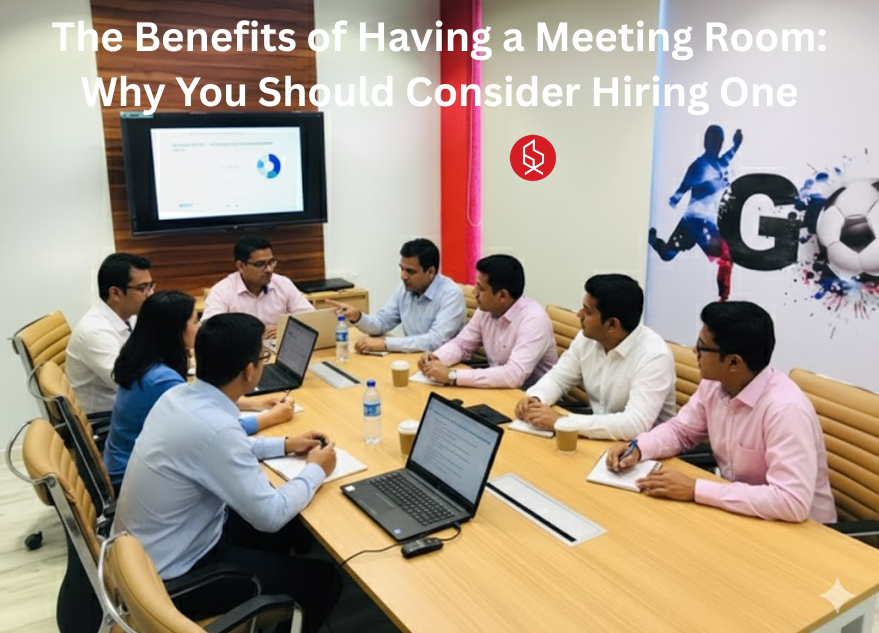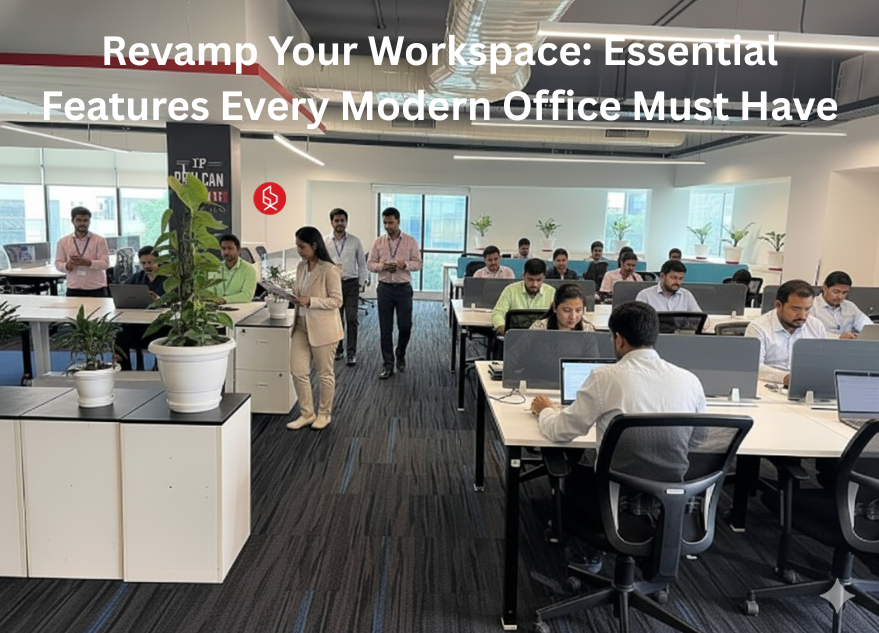Running an eCommerce business from home can be tough. Coworking spaces provide flexibility, resources, and a supportive community to help your business grow faster.
💡 Are you looking for Coworking space in Gurgaon, Noida or Delhi? We are just a call away. Call Now: 08999 828282
10 Reasons Coworking Spaces Are Perfect for eCommerce Entrepreneurs
- Affordable Alternative to Traditional Offices
- Professional Image for Client Meetings
- Access to High-Speed Internet and Tech Support
- Networking Opportunities with Like-Minded Entrepreneurs
- Boosted Productivity and Motivation
- Access to Business Resources and Events
- Flexible Space for Inventory and Operations
- Improved Work-Life Balance
- Access to Global Coworking Networks
- A Space That Grows with Your Business
1. Affordable Alternative to Traditional Offices
For eCommerce entrepreneurs, renting a private office can be expensive, especially in big cities. Coworking spaces provide an affordable solution with flexible membership plans. You can choose from daily, weekly, or monthly options based on your needs. This flexibility allows you to scale up or down as your business grows, without being tied to a long-term lease. Lower overhead costs mean you can reinvest more money into inventory, marketing, or customer experience.

2. Professional Image for Client Meetings
Even if your eCommerce business operates online, there are times you need to meet suppliers, partners, or clients in person. Coworking spaces offer access to professional meeting rooms, conference facilities, and private cabins. This gives your business a more credible image compared to meeting in a café or at home. Presenting yourself in a professional setting can build trust and strengthen business relationships—an essential factor for brand growth.
3. Access to High-Speed Internet and Tech Support
Fast and reliable internet is a must for eCommerce operations whether it’s managing your online store, uploading product images, or handling live customer chats. Coworking spaces provide high-speed internet and dedicated tech support, so you never have to worry about connectivity issues. This allows you to stay productive and focus on growing your business instead of troubleshooting network problems.
Also Read: Is Your Coworking Space Half Empty? Here’s the Fix
4. Networking Opportunities with Like-Minded Entrepreneurs
Coworking spaces are filled with professionals from various industries marketers, designers, developers, and business owners. These interactions can lead to valuable collaborations and partnerships. For instance, you could meet a digital marketing expert who helps you run better ad campaigns or a photographer who enhances your product visuals. Networking in coworking spaces can open doors to new ideas and growth opportunities for your eCommerce brand.
5. Boosted Productivity and Motivation
Working from home often comes with distractions. Coworking spaces offer a focused environment designed to enhance productivity. The energy of other motivated professionals can inspire you to stay on task and accomplish more. Additionally, many coworking spaces include dedicated quiet zones and brainstorming areas, helping you switch between focused work and creative planning easily perfect for running an eCommerce business that demands multitasking.
6. Access to Business Resources and Events
Many coworking spaces host workshops, mentorship sessions, and networking events for entrepreneurs. Attending these can help you learn about the latest eCommerce trends, SEO strategies, or inventory management tools. Some spaces even provide access to software discounts or partnerships with logistics companies. These extra perks can give your eCommerce business a competitive edge while keeping you up to date with the fast-changing digital marketplace.
7. Flexible Space for Inventory and Operations
If your eCommerce business deals with physical products, managing storage can be tricky. Some coworking spaces now offer flexible warehouse or storage add-ons. You can store inventory, pack orders, and manage deliveries without renting a separate facility. This setup saves both time and money while keeping operations under one roof ideal for small or growing online businesses.
8. Improved Work-Life Balance
Running an online store often blurs the lines between home and work. Coworking spaces help create a clear boundary between your professional and personal life. By commuting to a dedicated workspace, you can stay organized during working hours and truly relax after. This separation improves mental well-being and prevents burnout something every eCommerce entrepreneur needs to sustain long-term success.
💡 Are you looking for Coworking space in Gurgaon, Noida or Delhi? We are just a call away. Call Now: 08999 828282
9. Access to Global Coworking Networks
Many coworking providers have global branches or partner spaces, allowing you to work from different cities or countries. This is especially useful for eCommerce business owners who travel frequently for trade shows or supplier meetings. With a coworking membership, you can stay productive anywhere, ensuring your online store operations continue smoothly even when you’re on the move.
10. A Space That Grows with Your Business
As your eCommerce brand expands, your space requirements will change. Coworking spaces can easily adapt to your needs you can start with a hot desk and later upgrade to a private office or team suite. This scalability makes coworking an ideal long-term solution for eCommerce businesses aiming for steady growth without committing to expensive real estate.
Coworking spaces offer the perfect blend of flexibility, community, and resources that modern eCommerce entrepreneurs need. The Office Pass (TOP) takes this a step further—helping reduce costs, enhance professionalism, and provide access to valuable connections and learning opportunities. Whether you’re starting out or scaling your online business, TOP gives you the environment to grow efficiently while staying creative and balanced. Contact TOP today at 8999 828282 to get started!
FREQUENTLY ASKED QUESTIONS (FAQS):
Question: Why is a coworking space better for eCommerce businesses than working from home?
Answer: Coworking spaces provide a structured and distraction-free environment with professional facilities. They also allow you to network with other entrepreneurs and access business resources advantages that working from home can’t always offer.
Question: How can coworking spaces help improve productivity?
Answer: Coworking spaces are designed for focus and collaboration. The professional setting, availability of amenities, and the energy of other working professionals can help boost motivation and concentration throughout the day.
Question: Are coworking spaces affordable for small eCommerce startups?
Answer: Yes, most coworking spaces offer flexible pricing. You can choose a plan that fits your budget—such as a shared desk or part-time membership making it a cost-effective option for startups and solopreneurs.
Question: Can I store my eCommerce products in a coworking space?
Answer: Some coworking spaces offer additional storage or small warehousing options. You can keep inventory, pack orders, and manage deliveries without renting a separate storage unit, depending on the space’s policies.
Question: Do coworking spaces offer any networking benefits?
Answer: Absolutely! You’ll meet professionals from various fields—like marketers, developers, and designers. These interactions can lead to collaborations, partnerships, or even mentorship opportunities that help your business grow.
Question: What amenities can I expect in a coworking space?
Answer: Most coworking spaces offer essentials like high-speed internet, printers, meeting rooms, and cafeterias. Many also include perks like event access, business mentoring, or free coffee to enhance your work experience.
Question: Can I use a coworking space to register my eCommerce business address?
Answer: Yes, many coworking spaces allow you to use their address as your official business or mailing address. This adds professionalism to your brand and makes your business appear more credible.
Question: Do coworking spaces organize events for entrepreneurs?
Answer: Yes, many coworking spaces regularly host events such as business workshops, networking sessions, and skill-building seminars. These events help members learn new skills and make meaningful connections.
Question: How do coworking spaces support digital entrepreneurs?
Answer: Coworking spaces are ideal for digital entrepreneurs since they offer reliable internet, power backup, and access to a vibrant startup ecosystem. These features make it easier to run online operations efficiently.
Question: Can coworking spaces help me scale my eCommerce business?
Answer: Definitely! As your business grows, coworking spaces can easily provide more room or resources. You can upgrade your plan, add team members, or even access new locations making it a perfect partner for scalable growth.









